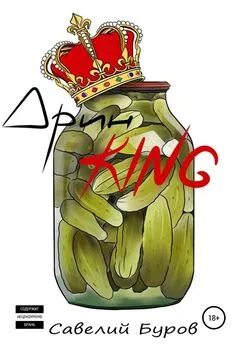Stephen King - Duma Key
- Название:Duma Key
- Автор:
- Жанр:
- Издательство:неизвестно
- Год:неизвестен
- ISBN:нет данных
- Рейтинг:
- Избранное:Добавить в избранное
-
Отзывы:
-
Ваша оценка:
Stephen King - Duma Key краткое содержание
Duma Key - читать онлайн бесплатно полную версию (весь текст целиком)
Интервал:
Закладка:
She thinks SAD, that word is SAD. Sat is for how you feel in the char.
She thinks If I could stop the hurt. If I could get it out like weewee. I cry and beg beg beg to say what I mean. Nan can't hep. When I say "Color!" she touch her face and smile and say "Always was, always will be." Big girls don't help either. I'm so mad at them, why don't you listen, YOU BIG MEANIES! Then one day the twins come, Tessie and Lo-Lo. They talk special to each other, listen special to me. They don't understand me at first, but then. Tessie bring me paper. Lo-Lo bring me pencil and I "Ben-cil!" out my mouth and it makes them claff and lap their hands.
She thinks I CAN ALMOST SAY THE NAME OF PENCIL!
She thinks I can make the world on paper. I can draw what the words mean. I see tree, I make tree. I see bird, I make bird. It's good, like water from a glass.
This is a little girl with a bandage wound around her head, wearing a little pink housecoat and sitting beside the window in her father's study. Her doll, Noveen, lies on the floor beside her. She has a board and on the board is a piece of paper. She has just succeeded in drawing a claw that actually does bear a resemblance to the dead loblolly pine outside the window.
She thinks I will have more paper, please.
She thinks I am ELIZABETH.
It must have been like being given back your tongue after you thought it had been stilled forever. And more. Better. It was a gift of herself, of ELIZABETH. Even from those incredibly brave first drawings, she must have understood what was happening. And wanted more.
Her gift was hungry. The best gifts - and the worst - always are.
4 - Friends with Benefits
i
On New Year's afternoon, I woke from a brief but refreshing nap thinking of a certain kind of shell - the orangey kind with white speckles. I don't know if I dreamed about it or not, but I wanted one. I was ready to start experimenting with paints, and I thought one of those orange shells would be just the thing to plop down in the middle of a Gulf of Mexico sunset.
I began prospecting southward along the beach, accompanied only by my shadow and two or three dozen of the tiny birds - Ilse called them peeps - that prospect endlessly for food at the edge of the water. Farther out, pelicans cruised, then folded their wings and dropped like stones. I wasn't thinking of exercise that afternoon, I wasn't monitoring the pain in my hip, and I wasn't counting steps. I wasn't thinking of anything, really; my mind was gliding like the pelicans before they spotted dinner in the caldo largo below them. Consequently, when I finally spotted the kind of shell I wanted and looked back, I was stunned at how small Big Pink had become.
I stood bouncing the orange shell up and down in my hand, all at once feeling the broken-glass throb in my hip. It started there and went pulsing all the way down my leg. Yet the tracks I saw stretching back toward my house hardly dragged at all. It occurred to me then that I'd been babying myself - maybe a little, maybe quite a lot. Me and my stupid little Numbers Game. Today I had forgotten about giving myself an anxious mini-physical every five minutes or so. I'd simply... gone for a walk. Like any normal person.
So I had a choice. I could baby myself going back, stopping every now and then to do one of Kathi Green's side-stretches, which hurt like hell and didn't seem to do much of anything else, or I could just walk. Like any normal unhurt person.
I decided to go with that. But before I started, I glanced over my shoulder and saw a striped beach chair a ways farther south. There was a table beside it with an umbrella, striped like the chair, over it. A man was sitting in the chair. What was only a speck glimpsed from Big Pink had become a tall, heavyset guy dressed in jeans and a white shirt with sleeves rolled to the elbows. His hair was long and blowing in the breeze. I couldn't make out his features; we were still too far apart for that. He saw me looking and waved. I waved back, then turned and began trudging for home along my own footprints. That was my first encounter with Wireman.
ii
My final thought before turning in that night was that I'd probably find myself hobbling through the second day of the New Year almost too sore to walk. I was delighted to find that wasn't true; a hot bath seemed to take care of the residual stiffness.
So of course I struck off again the following afternoon. No set goal; no New Year's resolution; no Numbers Game. Just a guy strolling on the beach, sometimes veering close enough to the mild run of the waves to scatter the peeps aloft in a smutchy cloud. Sometimes I'd pick up a shell and put it in my pocket (in a week I'd be carrying a plastic bag to store my treasures in). When I got close enough to make out the heavyset guy in some detail - today wearing a blue shirt and khakis, almost certainly barefoot - I once again turned and headed back to Big Pink. But not before giving him a wave, which he returned.
That was the real beginning of my Great Beach Walks. Every afternoon they got a little longer, and I saw the heavyset man in his striped beach chair a little more clearly. It seemed obvious to me that he had his own routine; in the mornings he came out with the old lady, pushing her down a wooden tongue of decking that I hadn't been able to see from Big Pink. In the afternoons he came out on his own. He never took off his shirt, but his arms and face were as dark as old furniture in a formal home. Beside him, on his table, were a tall glass and a pitcher that might have held ice water, lemonade, or gin and tonic. He always waved; I always waved back.
One day in late January, when I had closed the distance between us to not much more than an eighth of a mile, a second striped chair appeared on the sand. A second glass, empty (but tall and terribly inviting), appeared on the table. When I waved, he first waved back and then pointed at the empty chair.
"Thanks, but not yet!" I called.
"Hell, come on down!" he called back. "I'll give you a ride back in the golf cart!"
I smiled at that. Ilse had been all in favor of a golf cart, so I could go racing up and down the beach, scaring the peeps. "Not in the game-plan," I yelled, "but I'll get there in time! Whatever's in that pitcher - keep it on ice for me!"
"You know best, muchacho!" He sketched a little salute. "Meantime, do the day and let the day do you!"
I remember all sorts of things Wireman said, but I believe that's the one I associate with him the most strongly, maybe because I heard him say it before I knew his name or had even shaken his hand: Do the day and let the day do you.
iii
Walking wasn't all Freemantle was about that winter; Freemantle started to be about living again. And that felt fucking great. I came to a decision one windy night when the waves were pounding and the shells were arguing instead of just conversing: When I knew this new way of feeling was for real, I was going to take Reba the Anger-Management Doll down to the beach, douse her with charcoal lighter-fluid, and set her ablaze. Give my other life a true Viking funeral. Why the hell not?
In the meantime there was painting, and I took to it like peeps and pelicans take to water. After a week, I regretted having spent so much time farting around with colored pencils. I sent Ilse an e-mail thanking her for bullying me, and she sent me one back, telling me she hardly needed encouragement in that department. She also told me that The Hummingbirds had played a big church in Pawtucket, Rhode Island - sort of a tour warm-up - and the congregation had gone wild, clapping and shouting out hallelujahs. "There was a good deal of swaying in the aisles," she wrote. "It's the Baptist substitute for dancing."
That winter I also made the Internet in general and Google in particular my close personal friends, pecking away one-handed. When it came to Duma Key, I found little more than a map. I could have dug deeper and harder, but something told me to leave that alone for the time being. What I was really interested in were peculiar events following the loss of limbs, and I found a mother-lode.
I should tell you that while I took all the stories Google led me to with a grain of salt, I didn't reject even the wildest completely, because I never doubted that my own strange experiences were related to the injuries I'd suffered - the insult to Broca's area, my missing arm, or both. I could look at my sketch of Carson Jones in his Torii Hunter tee-shirt anytime I wanted to, and I was sure Mr. Jones had purchased Ilse's engagement ring at Zales. Less concrete, but just as persuasive to me, were my increasingly surreal drawings. The phone-pad doodles of my previous life gave no hint of the haunted sunsets I was now doing.
I wasn't the first person to lose a body-part only to gain something else. In Fredonia, New York, a logger cut off his own hand in the woods and then saved his life by cauterizing the spouting stump of his wrist. The hand he took home, put in a jar of alcohol, and stored in the cellar. Three years later the hand that was no longer south of his wrist nevertheless began to feel freezing cold. He went downstairs and discovered a cellar window had broken and the winter wind was blowing in on the jar with his preserved hand floating inside. When the ex-logger moved the jar next to the furnace, that sense of freezing cold disappeared.
A Russian peasant from Tura, deep in Siberia, lost his left arm up to the elbow in a piece of farming equipment and spent the rest of his life as a dowser. When he stood over a spot where there was water, his left hand and arm, although no longer there, would grow cool, with an accompanying sensation of wetness. According to the articles I read (there were three), his skills never failed.
There was a guy in Nebraska who could predict tornadoes by the corns on his missing foot. A legless sailor in England who was used by his mates as a kind of human fish-finder. A Japanese double amputee who became a respected poet - not a bad trick for a fellow who'd been illiterate at the time of the train accident in which he lost his arms.
Of all the stories, maybe the strangest was that of Kearney Jaffords of New Jersey, a child born without arms. Shortly after his thirteenth birthday, this formerly well-adjusted handicapped child became hysterical, insisting to his parents that his arms were "hurting and buried on a farm." He said he could show them where. They drove two days, finishing up on a dirt road in Iowa, somewhere between Nowhere and Nowhere in Particular. The kid led them into a cornfield, took a sighting on a nearby barn with a MAIL POUCH advertisement on the roof, and insisted that they dig. The parents did, not because they expected to find anything but because they hoped to set the child's mind and body at rest again. Three feet down they found two skeletons. One was a female child between twelve and fifteen. The other was a man, age undetermined. The Adair County Coroner estimated these bodies had been in the ground approximately twelve years... but of course it could have been thirteen, which was the span of Kearney Jaffords's life. Neither body was ever identified. The arms of the female child's skeleton had been removed. Those bones were mixed with the bones of the unidentified man.
Fascinating as this story was, there were two others that interested me even more, especially when I thought of how I'd gone rooting through my daughter's purse.
I found them in an article called "They See with What's Missing," from The North American Journal of Parapsychology. It chronicled the histories of two psychics, one a woman from Phoenix, the other a man from R o Gallegos, Argentina. The woman was missing her right hand; the man was missing his entire right arm. Both had had several successes in helping the police find missing persons (perhaps failures as well, but these were not set out in the piece).
Читать дальшеИнтервал:
Закладка:








